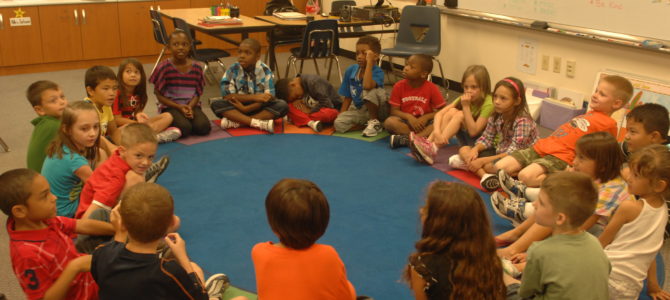Critical race theory (CRT) is a quantum ideology: Now you see it; now you don’t. Its defenders tell us that it is, at most, an “academic theory” limited to law school musing and nowhere to be found in public schools. Except when they claim that schools must teach it.
On July 8, the American Civil Liberties Union of Wisconsin sent a letter to each school district administrator in the state specifically invoking the national and local controversy over “critical race theory” and attempts to limit its teaching. In that particular context, the letter “reminds” the districts of anodyne statutory directives to teach an “understanding of human relations, particularly with regard to American Indians, Black Americans and Hispanics” and that curricula should reflect “the cultural diversity and pluralistic nature of American society.”
The letter warns schools they can be sued for creating a racially hostile environment and notes they have a legal obligation “proactively to remedy and end any racially hostile environment in their schools.” That “will often necessarily include discussions of race.” It claims that undefined “culturally responsive” teaching will enhance the performance of racial minorities.
While the ACLU never says “teach CRT-derived concepts or else,” it takes little imagination to pick up that message. It’s as if the ACLU is saying, “Maybe there is no such thing as CRT in the schools, but there had better well be CRT in the schools.”
This Doesn’t Mean Bans on Talking about Race
The ACLU tries to navigate this paradox by characterizing efforts to restrict CRT as attempts to limit or even ban “talk about race.” They are not.
Critical race theory and the instructional concepts derived from it are characterized by a focus on racial essentialism (the idea that persons are substantially defined by their race), an exaggerated standpoint epistemology (the idea that one’s perspective is substantially formed by his or her race), and an emphasis on something called white privilege and the assumption of black oppression. These teachings often include concepts of collective guilt or responsibility on the one hand and collective victimhood and entitlement on the other.
CRT concepts sometimes include the identification of “white” and “black” values and culture, suggesting, for example, that things like objective, rational, linear thinking; quantitative emphasis; and hard work before play are white. They are sometimes taught by pedagogical devices that segregate children by race and compel them to repeat or assent to a variety of contested propositions about race and a child’s “role” in “systems” of “racism” and “oppression.” They are often not limited to the provision of information or explanation of a perspective, but include a call for action.
These things — not “talking about race” or teaching American history in full — are why Americans object to CRT. Proposals to limit curriculum or teaching derived from CRT differ and are of varying merit, but the best of them seek to prohibit schools from advocating for or requiring students to assent to a list of specific propositions, such as claims that individuals by virtue of their race or sex are inherently racist or bear responsibility for actions others committed in the past.
Growing Resistance to CRT
The ACLU letter, hinting at litigation against efforts to reign in the ACLU, is a reaction to both state legislature efforts and a growing rebellion among parents. Wisconsin families aren’t being fooled.
For example, parents in the Mequon-Thiensville school district, one of the highest-performing in the state, have begun an effort to recall the school board. Parent groups are springing up across the state.
One of the main organizers of the Mequon-Thiensville effort, an Hispanic-American mother named Scarlett Johnson, complains that “school districts are not forthright about philosophies like Critical Race Theory being taught in the classroom.”
The ACLU may think its legal letter can head this movement off at the pass. But it may have things exactly backwards. The litigation may come from CRT opponents.
The ACLU letter observes that school districts are prohibited from creating a racially hostile climate. That’s true. But, to the extent that the letter implies teaching these concepts derived from CRT or similar ideologies is necessary to avoid such an environment or that restricting them creates one, the ACLU letter is not only wrong, it is dangerously wrong. It gets the matter exactly backward.
While all “CRT-based” training may not create a hostile environment, much of it does. Teaching children that they are complicit in “systems of oppression” or have certain qualities or faults based on the color of their skin can create a hostile environment, as can pedagogical techniques that require students to enact or affirm these contentions.
Lawsuits have begun and will continue as long as these teaching practices are used. They make the ACLU’s “advice” particularly dangerous. Schools need not do what it implies they must. If they do, they may create the hostile environments — and face the very lawsuits — that the ACLU “warns” against.









